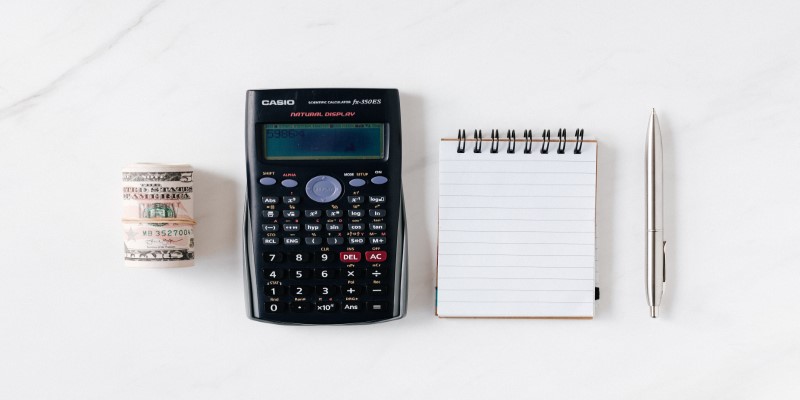A Beginner’s Guide to Discretionary Income
Dec 31, 2023 By Susan Kelly
You can think of discretionary income as the leftover cash in your wallet after covering all the essential stuff. These leftover funds hold a special place in the world of finance because they not only influence your choices but also affect the economy. It is the money that you choose to spend, save, or invest.
In this article, we are going to discuss every essential detail about discretionary income. So, without any further delay, let’s delve into the details of this income to find out how it has an impact on our day-to-day lives.
What Does Discretionary Income Mean?
Discretionary income is basically the income that is left behind for an individual’s household or business after that individual has paid all the essential and necessary expenses. The expenses that have been mandated by the law or are needed to survive are termed necessary or essential expenses.
Understanding Discretionary Income
For the stability and regulation of a market-based economy, discretionary income serves as a driving force. Since the growth and success of an economy are dependent on spending and increased production, growing discretionary income is essential for an economy that is flourishing. Three options are available for allocating discretionary income:
Spending
Money is directed toward businesses and companies that offer certain goods and services when people and families spend a larger portion of their discretionary income on luxury goods, vacations, and other unnecessary items. This allows businesses to make a good profit that can be used to reinvest in order to expand the operations of a company.
As a result, there will be more job opportunities, and discretionary income will increase further. Furthermore, companies have the option to distribute profits to their shareholders, boosting the discretionary income of their shareholders.
Investment
Some people use their discretionary income to make different types of investments. It ultimately helps different companies to earn a lot of money. With the help of this money, companies may grow and create more employment and discretionary income. Investors expect to earn some return or money from their investments, which increases the discretionary income of that investor later.
Saving
Some people have a habit of setting aside a little money as savings in their bank account. These banks operate by taking money from a person who wants to keep it safe. A bank protects the money and lends a portion of that saved money to someone else who needs funds at that time. Borrowers may be businesses or individuals that use the money for activities that will ultimately have a positive impact on a country’s economy.
How to Calculate Discretionary Income?

Discretionary income can be calculated on a weekly, monthly, or annual basis. However, it is recommended to calculate your discretionary income on the basis you get your income. Suppose you get your salary on a monthly basis; you are advised to compute your income on the same basis.
But the question is, how do you calculate discretionary income? For that purpose, we have a step-by-step guide that will make the calculations easy for you.
Define Your Whole Income
It can be an easy task if you make monthly revenue from a single full-time job. If you make money from many sources or different employments, you can simply add the money generated from each source to get your overall revenue.
Subtract Taxes
It is a widespread practice for firms to subtract a part of your salary, which goes towards paying taxes as well as pension contributions. And you get the money which is left behind after deducting all the taxes. Therefore, you don’t have to minus the taxes from your salary by yourself because it has already been done by the organization in which you work.
Subtract Necessary Expenses
Any regular, necessary outgoing expenditure, like rent, utilities, insurance fees, and mortgage payments, is considered a significant expense. It also involves paying off debts like credit card debt and personal loans, as well as routine expenses for groceries as well as extra necessities like housekeeping.
Once you are done with all the steps mentioned above, the next thing is to see what is left behind. This is your discretionary income.
How to Increase Your Discretionary Income?

Once you have calculated your discretionary income, now you have a clear idea of how much extra cash you are left with to spend on additional discretionary things. You may find out that you need a large amount of your discretionary income to meet the requirements of your extravagant lifestyle. In such a case, you will definitely look for other ways that will help you boost your discretionary income.
The simple solution to increase your discretionary income is to search for a new job that offers a handsome salary. Or, if you have the time and potential to bear the burden that comes with an additional job, then you can also consider going for a part-time job.
But a part-time job or a high-salary job is only going to help if your essential costs do not increase with the increase in your monthly income. Another way to boost this income is to analyze if any essential costs can be minimized. For instance, utility bills come under the category of essential costs. Look for any possible way to minimize your spending on such bills if you wish to increase your discretionary income.
Try to find new investment opportunities that fit your risk tolerance and financial objectives. Over time, investments may yield more income, which helps to grow your available cash. Try to establish other sources of passive income. You may increase discretionary income with passive income without having to work as hard all the time.
The Bottom Line!
In this article, we have thoroughly discussed discretionary income, including the steps involved in its calculation and ways to increase it. It's entirely up to you whether you decide to spend your extra money on fun activities or save it for future use. However, before deciding what to do with your discretionary income, you must remember that it can help you gain financial stability if handled wisely.

Investing in 3x ETFs Can Be Riskier Than You Think
The chances are excellent that if you've been following the stock market for any time, you've heard of a leveraged exchange-traded fund. A ticker symbol identifies an exchange-traded fund, a collection of equities. Throughout the day, they are purchased and sold at prices that may be higher or lower than their net asset worth.
Nov 23, 2023 Triston Martin

Managing my money for young adults | OpenLearn
Learning to handle your money well early in life to set a pattern for years of financial security
Nov 05, 2024 Elva Flynn

What Exactly Is Order Flow Payment?
When a broker routes a customer's trade execution order to a certain market maker or exchange, the broker receives "payment for order flow," often in the fractions of a penny per share. Order flow compensation is commonplace in the options market and is gaining traction in the equity market.
Jan 20, 2024 Triston Martin

Why Do Derogatory Marks Stay on Your Credit
In a positive turn of events, you can immediately begin taking steps to repair your credit. Maintaining on-time bill payments and keeping utilisation below 30% of available credit will significantly improve credit ratings
Oct 10, 2023 Triston Martin

Unveiling the Top Facts: Lands’ End Visa Card
Discover the Lands' End Visa Card benefits including exclusive shopper rewards, flexible payment options, and financial management without an annual fee.
Feb 01, 2024 Susan Kelly

Habits to Getting Financial Freedom
Financial freedom is having enough cash, savings, investments, and cash available to allow you to live your desired lifestyle and build a nest egg to support your retirement. Many factors can prevent you from reaching your financial freedom goals, such as increasing debt, financial emergencies, and wasteful spending.
Jan 17, 2024 Susan Kelly